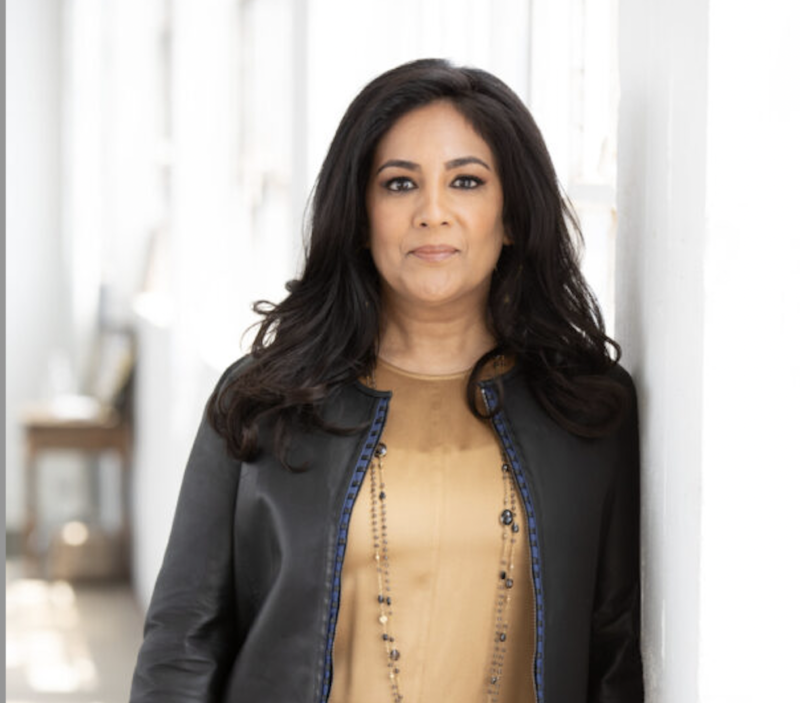Deepa Purushothaman is a former senior executive and a corporate inclusion visionary. Deepa was a senior partner at Deloitte. In 2020, Deepa left to co-found nFormation, a membership-based community for professional Women of Color and write her debut book, The First, The Few, The Only: How Women of Color Can Redefine Power in Corporate America. She challenges and redefines the status quo of leadership, success, and power by centering the experiences of Women of Color.
Can you tell us a little about your background and the company?
My book and my company, nFormation, stemmed out of a comment a public company CFO shared with me. She said, I sit in a seat of power and I don’t feel powerful. I was startled and yet it felt so familiar. I wanted to study this concept and understand it since I heard this over and over again from the women I interviewed. Most of the women I interviewed believed erroneously that, once they were a senior leader in their organizations, they could be more of themselves. But once they reached the top, they were more invested in the company, and it was even harder to speak up, stand out, and be different.
One woman I interviewed shared, “They promote you, but ultimately, what they want is a skirt- wearing dark- skinned white leader with an accent. We have to let go of the fairy tale of “one day” and realize that no matter what stage we are at in our careers, each action to conform is actually a decision we make, even if it might not feel like it in the moment.”
How did the idea come to you for the company?
I spent over twenty years in corporate America. I often found myself a first, few and an only.
I always had a real passion for inclusion and helping other women rise. In the years before I left Deloitte, I had a more formal role as the managing partner for WIN, Deloitte’s pioneering program to recruit, retain and advance women.
In an attempt to figure out what I wanted to do next I started gathering WOC in small gatherings. I started to see patterns in what we were facing and I thought I can do something about this to change it for the women who come after me.
So I co-founded nFormation as a way to provide a safe, brave and new space for WOC to tap into community, and pioneer ways to advance that felt true to who they were, and where they came from.
How did you achieve awareness?
We began with an exclusive cohort of founding members and then opened up membership. We focused on ground breaking programming, curating conversations that boldly departed from the status quo, and ensuring that the member experience felt personalised and attuned. From there, it was word of mouth and good press that helped raise awareness.
How have you been able to gain funding and grow?
We’re self-funded so far, which has allowed us to retain autonomy and grow intentionally.
What are the key successes?
We’ve made great strides in establishing our thought leadership in the DEI space, with research that’s been supported and shared by heavy hitters, like Lean In. We’ve also hosted forums that have brought together senior executives from major companies and brands to have conversations about recruiting, cultural change, and new models of power and influence.
But perhaps the greatest success has been our unwavering commitment to and contact with the lived experience of WOC. It’s their voice we exist to amplify.
What were/are the challenges and how have you overcome these?
Challenges have included: building an almost exclusively digital community in the midst of a pandemic; finding the right model of membership; and staying in step with the most pressing issues our women are facing, whether burn out, or world events or seasonal shifts.
What are your plans now/for the future?
We want to continue to prioritize research, and a high touch membership experience, while focusing more on board-readiness for senior professionals.
What would you like to share with others to encourage them to start their own entrepreneurship journey?
You know more than you think you do, and you’ll learn the rest by doing. As WOC especially, we sometimes feel like we need a perfect plan to get started, but the freedom to fail, evolve and iterate in real time is the greatest privilege, and essential fuel for entrepreneurship.
Can you share your top tips for entrepreneurial success?
Facts are important but I rely on my gut a lot. In hindsight, the times things have not worked out as I really wanted or times that have ended really badly were times I ignored my gut or that nagging feeling I had and did something because I thought I should. Leading is not just about facts or reason, intuitive wisdom is important in leadership too.
Who are the 5 people who inspire you the most and why?
Billie Jean King. Oprah. Reshma Saujani. Serena Williams. Viola Davis.
They could have all rested on their laurels but instead they shared their privilege, and used their spotlight to illuminate critical and often uncomfortable issues around equity and representation.
What are your favourite inspirational /motivational quotes?
Be the change you want to see in the world.
What are your Instagram, Facebook and LinkedIn social handles and also website links so our readers can connect with you?
Insta: deepa.puru
Twittter: @deepapuru LI: https://www.linkedin.com/in/deepapuru/
TSF Reporters
The Successful Founder Magazine is the go to feature-rich magazine for founders on all stages of their entrepreneurship journey .
- TSF Reporters#molongui-disabled-link
- TSF Reporters#molongui-disabled-link
- TSF Reporters#molongui-disabled-link
- TSF Reporters#molongui-disabled-link






